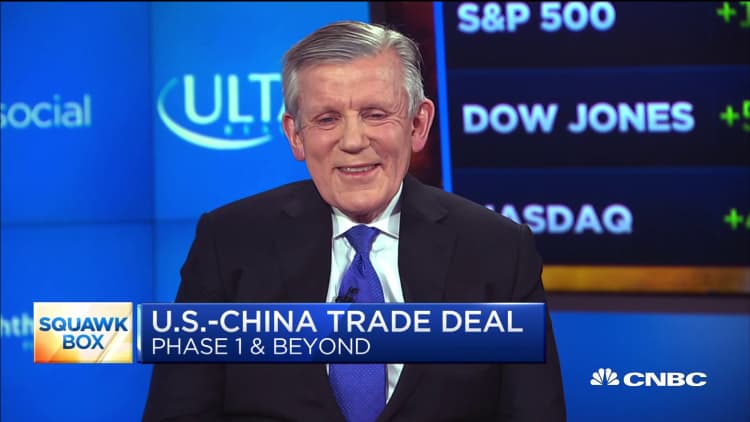
Beijing and Washington will never see eye to eye ideologically, so investors, business leaders and politicians should all stop expecting it, Snap-on Chairman and CEO Nicholas Pinchuk told CNBC on Monday.
"We're never going to make China [into] America," Pinchuk said on "Squawk Box," after Friday's announcement of a phase one U.S.-China trade deal after 18 months of escalating tensions.
Pinchuk said that Chinese culture is rooted in a sense of community, while the U.S. holds individuality sacred.
"We believe the rights of the individual are ascendant. They believe the rights of community [are] ascendant," he said. "We're never going to make them the same. It takes time to move them away from this."
However, Pinchuk said that such differences should not prevent the world's two largest economies from continuing to work toward further phases of agreement on their trade and economic differences.
Pinchuk has perspective on China as toolmaker Snap-on makes some of its products in two areas of that country in addition to its facilities in Europe and South America. Snap-on largely manufactures in the U.S.
In general, Pinchuk said he sees the first-step trade deal between the U.S. and China as a positive. "We can make progress commercially; at least open the market."
On Friday, President Donald Trump confirmed the phase one trade deal, saying China agreed to increase agricultural purchases and structural change to intellectual property and technology issues.
In exchange, the U.S. delayed new 15% tariffs on about $160 billion in Chinese goods, which had been set to go into effect Sunday. The U.S. also cut September tariff rates from 15% to 7.5% on roughly $120 billion of Chinese imports.
However, the Office of the United States Trade Representative said the U.S. will keep 25% tariffs on about $250 billion of Chinese imports.
On Sunday, U.S. Trade Representative Robert Lighthizer said the U.S.-China trade agreement is "totally done," with both sides hoping to sign the deal in Washington in early January.


